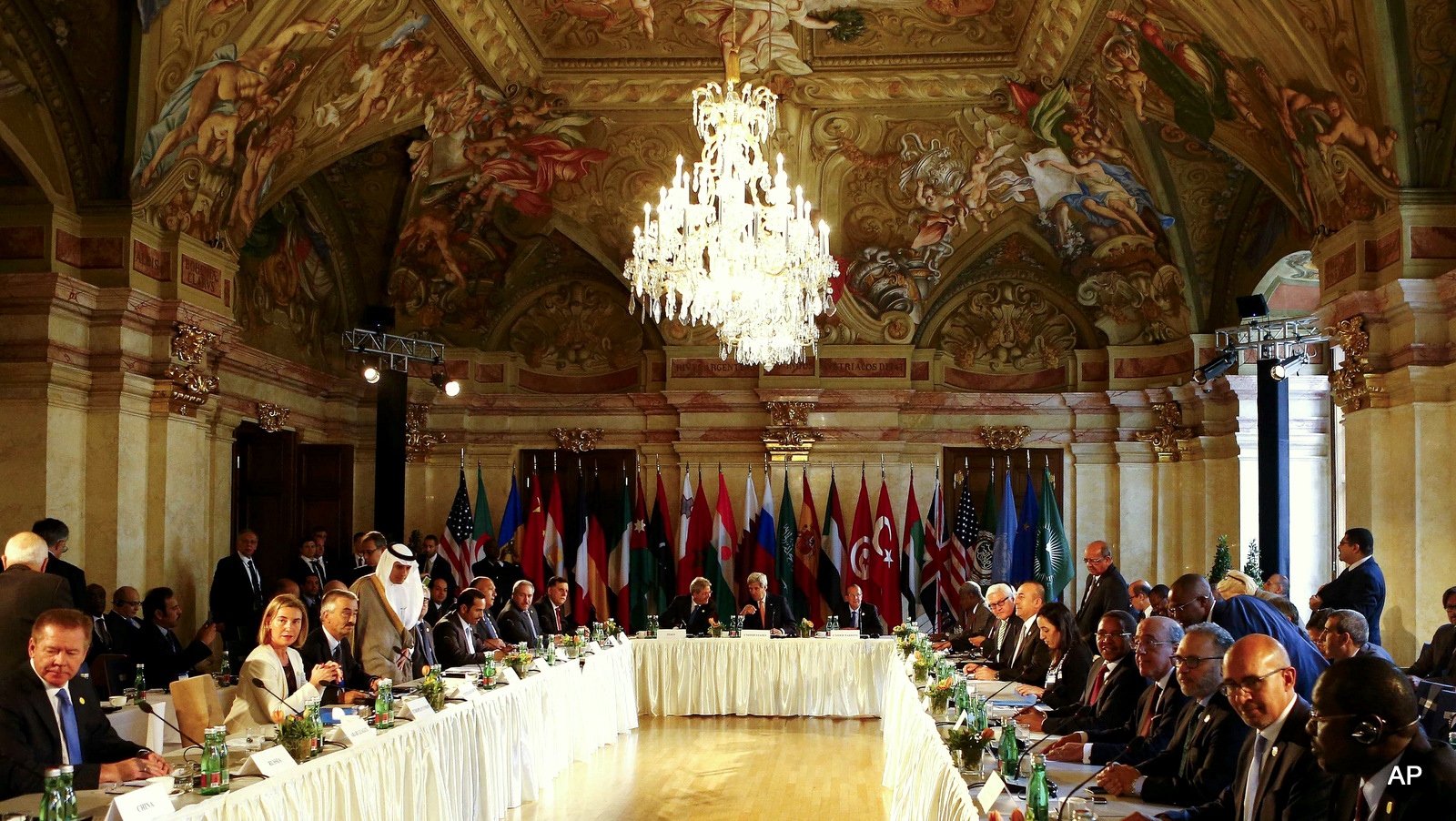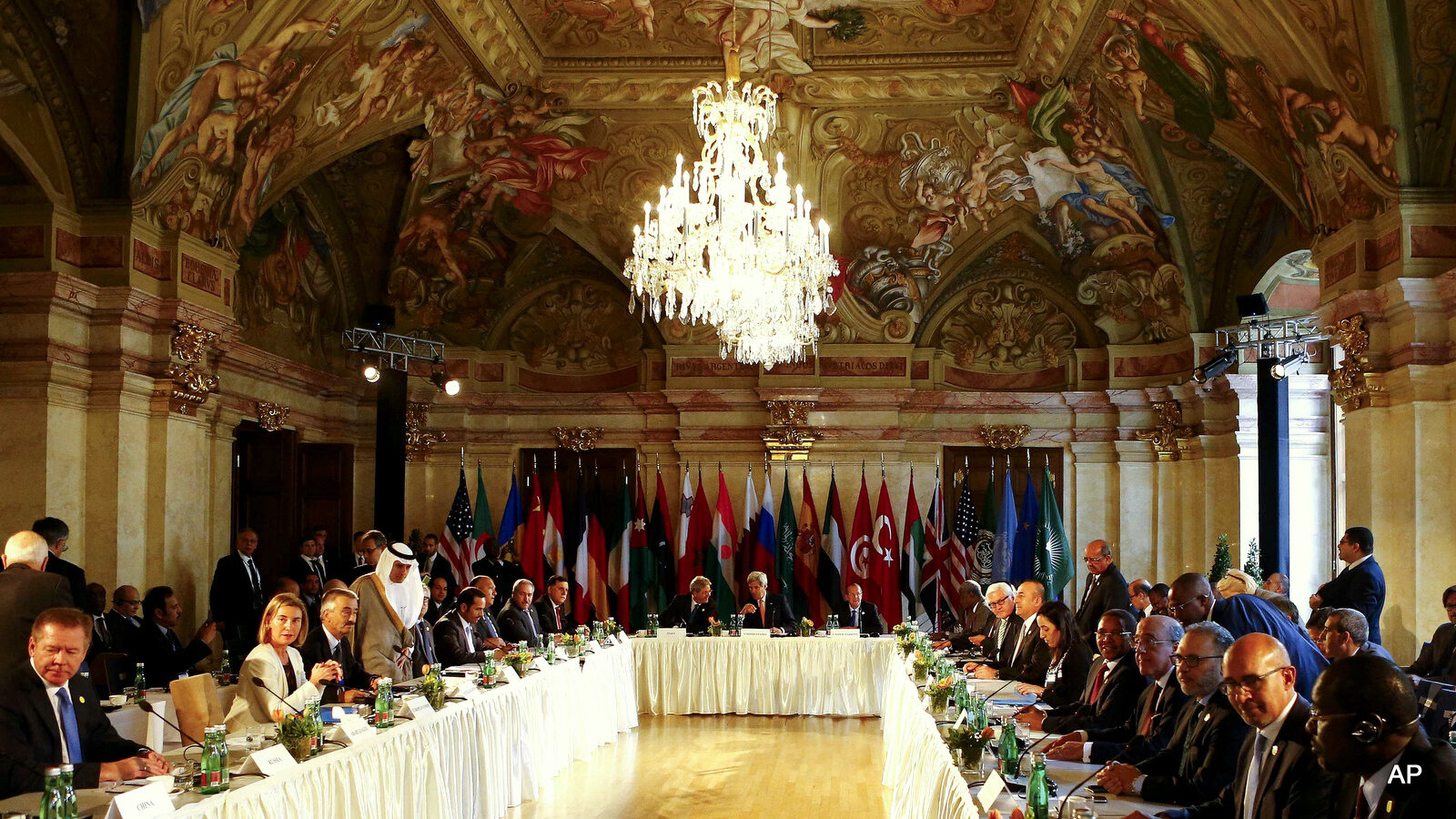
Major world powers convening in Vienna on Monday said they were prepared to lift a UN arms embargo on Libya’s new unity government to help it secure control over the chaotic North African oil state.
The West and Libya’s neighbors hope a new UN-backed government will be able to dislodge the so-called “Islamic State” (IS) and prevent an influx of migrants from crossing the sea to Europe.
“The key question is whether Libya remains a place where terrorism, criminal human smuggling and instability continues to expand, or if we are able, together with the government of national unity, to recover stability,” said German Foreign Minister Frank-Walter Steinmeier, summing up the issues ahead of a meeting of top diplomats from 21 countries.
The foreign ministers said in a communiqué they were “ready to respond to the Libyan government’s requests for training and equipping” of government forces.
The approval, including from all five permanent members of the UN Security Council, all but ensures an exemption from a 2011 UN arms embargo for the new unity government. Any lifting of the arms embargo would not apply to other armed groups in the country.
Risky decision
International powers prodding Libyans to overcome their differences had said they would support a new government. However, the decision to partially lift the embargo is risky.
There are concerns over whether the new unity government will be able to keep weapons out of the hands of extremists and a multitude of militias, as well as the potential for human rights abuses.
The new UN-backed unity government led by Fayez al-Sarraj sailed into the western city of Tripoli at the end of March in an effort to bring stability to Libya five years after NATO-backed rebels ousted strongman Moammar Gadhafi and the country descended into chaos.
US, allies want to arm Libyan government
The Government of National Accord (GNA) has only very loose control in a collapsed state filled with competing armed groups. It has secured the support of the administration in Tripoli but not a rival parliament in the eastern city of Tobruk.
The two rival administrations have been fighting each other for more than a year. A power vacuum has enabled IS to carve out an area of control around the central coastal city of Sirte, where Western intelligence agencies estimate the extremist group has more than 5,000 fighters. Europe is concerned IS could use Sirte to launch attacks on the continent.
“The situation in Libya is extremely bad, I’ll be very frank, economically, financially and security-wise,” said Sarraj, the head of the GNA. “It requires the collaboration of all parties.”
Sarraj said he would submit a proposal to world powers for “assistance on training and equipping our troops.”
US Secretary of State John Kerry said while the US supported exempting the new unity government from an arms embargo it was “a delicate balance.”
“But we are all of us here today supportive of the fact that if you have a legitimate government and that legitimate government is fighting terrorism, that legitimate government should not be victimized by [the embargo],” he told reporters.
‘Stabilization of Libya is key’
To prop up the new government, world powers are also prepared to give humanitarian and economic assistance.
“The stabilization of Libya is the key answer to the risks that we have, and to stabilize Libya we need a government,” said Italian Foreign Minister Paolo Gentiloni, who co-chaired the meeting.
The West has shot down the idea of sending in combat troops, but France and Britain have special forces advisers in the country. The United States also has special forces in the country collecting intelligence and is ramping up its drone and air power capability in the region, recently carrying out an airstrike against IS.
Libya descended into chaos in 2011 after NATO intervened to aid rebels seeking to topple longtime ruler Gadhafi. The sudden collapse of the state and presence of massive weapons stockpiles added fuel to regional and tribal rivalries in the oil rich country.
The country’s weapons stockpiles have ended up as far away as Syria, where Libyan jihadists flooded in to oust President Bashar al-Assad. Some battle-hardened jihadists have since returned to Libya.
Libya’s massive weapons caches have also ended up in West Africa, where they helped to strengthen insurgent groups al-Qaeda and Boko Haram.


